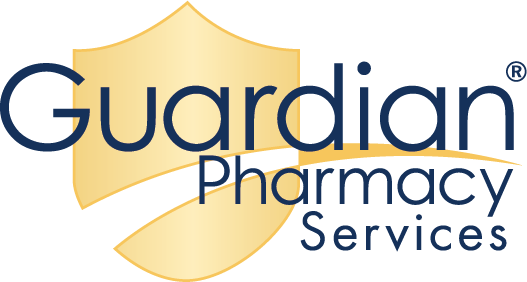Leveraging Technology to Reduce Medication Errors
by Lori Newcomb, RPh, BCGP
When Deborah Graf, board-certified geriatric pharmacist and consultant with Guardian Pharmacy, recently performed a medication regimen review for a resident newly admitted to a community, she noticed the instructions for a blood thinning medication had been entered incorrectly into the electronic health record (EHR). Weeks later, in the same community, she identified an error where the prescriber had discontinued a resident’s antiplatelet medication during a care transition. There was one problem: the order remained active in the EHR. Fortunately, due to technology, both errors were identified and resolved immediately, preventing two significant medication errors from occurring weeks apart in the same community.
These are not isolated incidents. An estimated 800,000 preventable medication-related injuries occur every year in U.S. long-term care (LTC) facilities, according to the Institute of Medicine. Worse, adverse drug events lead to 700,000+ visits to the emergency department each year, according to the Centers for Disease Control and Prevention.
Common Causes of Medication Errors
These errors, primarily caused by human mistakes during prescribing, data entry, care transfers, or medication administration, make medication management challenging. The most common errors include under- or over-prescribing, providing the wrong medication to the wrong resident, dose omission, or administering the incorrect strength.
Embracing Technology
But today, rather than remain reliant on human intervention, providers and their LTC pharmacy partners can embrace rapidly evolving technologies to significantly reduce medication error frequency.
The use of integrated technology, including computerized physician order entry, automated dispensing, barcode scanning, EHRs, and applications connecting the community staff and the pharmacy in real time, provides the pharmacist and community with a 360-degree view of a resident’s medication profile and is vital to strategies aimed at preventing medication errors.
The Impact of the Senior Care Pharmacist
LTC pharmacists who have specialized knowledge of the unique medication-related needs of older adults are among the best resources for ensuring safe medication management.
“Operators now have multiple medication error prevention strategies at their disposal, including leveraging the expertise of their LTC pharmacists. Maximizing the technologies available from their EHR vendor, including interoperability between the EHR software and the LTC pharmacy’s dispensing system, can make a significant impact on medication therapy accuracy.”
– Erin Marriott, RPh, BCGP, director of clinical and regulatory support at Guardian Pharmacy Services
While multiple doctors may prescribe, the LTC pharmacist has a complete view of a resident’s medications and can make sure drug combinations are safe, medications are necessary, and help identify potential adverse effects early. They can intervene to prevent what may seem like small errors in communication from resulting in potentially serious patient outcomes.
“Pharmacists have always had an important role in clinical interventions, from identifying drug interactions and duplicate therapies to reconciling medication order sets. But now, with the wide-spread adoption of integrated technology and the real-time connectivity between the pharmacy and community improving communications, we can better track these interventions, visualize the data and analytics and see statistically the positive impact pharmacists make preventing errors.”
– Mick Holbrook, Vice President, Data Strategy at Guardian Pharmacy Services
Medication errors can occur, but by using the latest technology and partnering with a LTC pharmacy, community operators can take an active role in mitigating mistakes and enhancing care quality. The data and analytics provide measurable evidence.

Lori Newcomb is a board-certified geriatric and lead consultant pharmacist at Guardian Pharmacy of Atlanta with over 30 years of long-term care experience.








